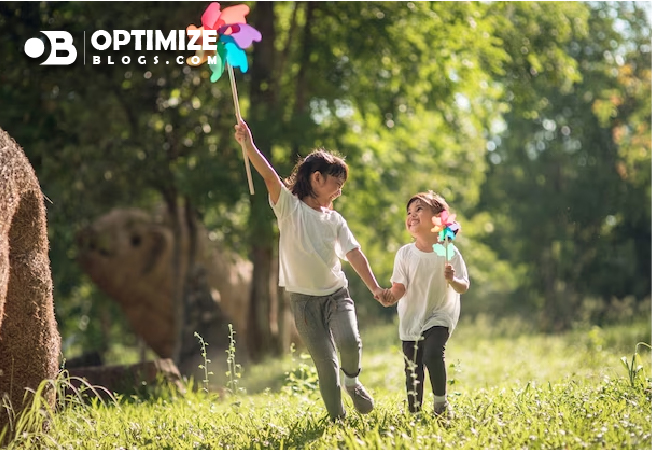
Play is not just a way for children to have fun; it's a fundamental aspect of their development. As parents, caregivers, and educators, understanding the power of play and its role in stimulating a child's physical, cognitive, and emotional growth is essential. In this comprehensive guide, we will explore the significance of play in childhood development and offer insights into how you can optimize playtime to benefit your child's overall growth.
The Importance of Play in Childhood
Play is often considered the work of childhood. It is through play that children learn about themselves, their environment, and the world around them. Here are some key aspects of play's importance:
Cognitive Development
Problem Solving : Play encourages children to solve problems and make decisions. Whether it's building a tower of blocks or completing a puzzle, these activities stimulate critical thinking.
Imagination and Creativity : Pretend play allows children to use their imagination, creating scenarios and stories that foster creativity.
Language Development : Play often involves communication, which helps children develop language skills, expand vocabulary, and enhance social interaction.
Physical Development
Fine Motor Skills : Activities like drawing, building with small blocks, and using playdough improve fine motor skills and hand-eye coordination.
Gross Motor Skills : Physical play, such as running, jumping, and climbing, develops gross motor skills and enhances physical strength and agility.
Emotional and Social Development
Emotional Regulation : Play provides a safe space for children to express and regulate their emotions. They can act out feelings and learn to manage them.
Social Interaction : Group play teaches children valuable social skills such as sharing, cooperation, and taking turns. It helps them build relationships and understand social norms.
Empathy and Role-Playing : Pretend play allows children to step into different roles, promoting empathy and an understanding of others' perspectives.
Types of Play
Play takes various forms, each contributing to different aspects of development:
Pretend Play
Also known as imaginative or symbolic play, this type involves pretending to be someone else, using objects symbolically, and creating scenarios. Examples include playing house, doctor, or using dolls and action figures.
Physical Play
Physical play involves movement and activity. It includes activities like running, jumping, climbing, dancing, and playing sports. Physical play develops gross motor skills and encourages exercise.
Constructive Play
Constructive play involves building and creating. It includes activities like building with blocks, drawing, painting, and using construction toys. This type of play enhances problem-solving skills and creativity.
Games with Rules
Games with rules, such as board games or team sports, teach children important social skills like following rules, taking turns, and good sportsmanship.
Exploratory Play
Exploratory play involves investigating and discovering the properties of objects and materials. Activities like sensory play with sand, water, or playdough fall into this category.
Optimizing Play for Child Development
Now that we understand the importance of play, here are ways to optimize playtime for your child's development:
Create a Playful Environment
Provide a safe and stimulating play environment both indoors and outdoors.
Offer a variety of toys and materials that encourage different types of play.
Minimize distractions during playtime to help your child focus.
Join the Play
Participate in your child's play to enhance bonding and show them that you value their interests.
Be an active listener and follow their lead during play.
Encourage open-ended play by letting your child take the lead in setting the rules or direction of play.
Balance Structured and Unstructured Play
Offer a mix of structured activities, such as puzzles and games, and unstructured play where your child can explore and create freely.
Allow downtime for free play without a set agenda.
Encourage Outdoor Play
Outdoor play provides opportunities for physical activity, exploration of nature, and fresh air.
Create a garden or play area where your child can connect with the outdoors.
Limit Screen Time
Minimize screen time and choose age-appropriate, educational content if screens are used.
Encourage activities that involve physical and social interaction instead.
Foster Imagination
Provide props and materials for pretend play, such as costumes, puppets, and playsets.
Encourage storytelling and imaginative play by asking questions and participating in their narratives.
Respect Your Child's Choices
Allow your child to choose their play activities based on their interests and preferences.
Avoid over-scheduling or imposing your own preferences on playtime.
Conclusion: The Transformative Power of Play
Play is a natural and powerful way for children to explore, learn, and grow. By recognizing its importance and creating a supportive play environment, parents and caregivers can foster their child's physical, cognitive, and emotional development. As you watch your child engage in play, remember that these seemingly simple activities are the building blocks of their future success and happiness. Embrace the joy and wonder of play, and watch your child flourish.






